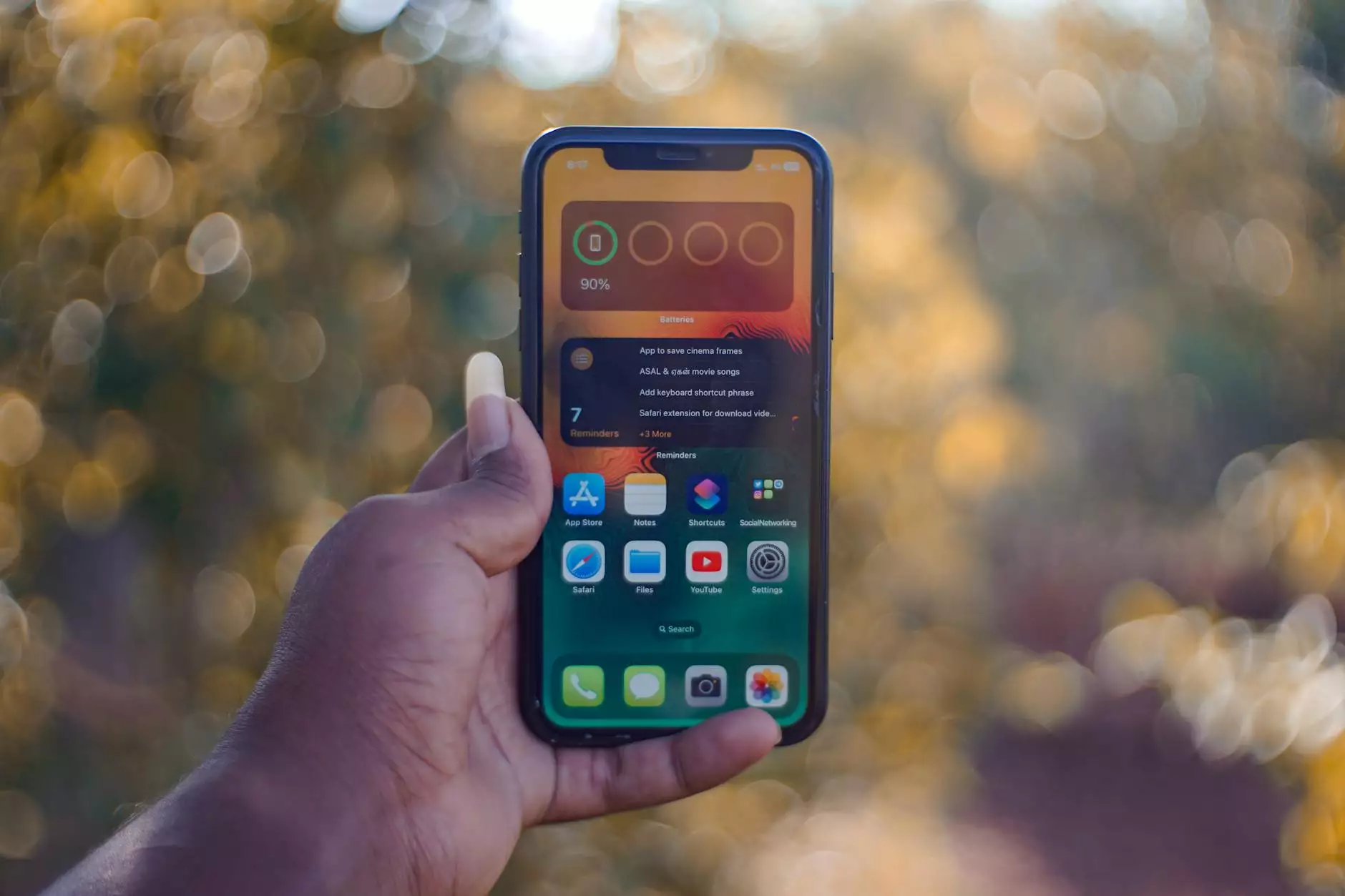The Rise of Native Apps in Mobile Phone Software Development

In the ever-evolving landscape of technology, native apps have emerged as a crucial player in the realm of mobile phones and software development. But what exactly are native apps? Why are they gaining such prominence among businesses and developers alike? This article delves deep into the significance of native apps, their benefits, and how they are transforming the mobile development scene.
What are Native Apps?
Native apps are applications developed specifically for a particular platform, such as iOS or Android. Written in the languages that are specific to the operating system—Swift or Objective-C for iOS, and Java or Kotlin for Android—these apps seamlessly integrate with the device’s hardware and software. This integration allows for optimal performance and user experience.
Why Choose Native App Development?
There are several compelling reasons to opt for native app development. Here are some of the key advantages:
- Performance and Speed: Native apps are typically faster and more responsive compared to their cross-platform counterparts due to their ability to utilize the device’s processing power directly.
- Better User Experience: They provide a more intuitive and engaging user interface, adhering to the design guidelines set by the operating system.
- Access to Device Features: Native apps have full access to the hardware and features of a device, such as the camera, GPS, and accelerometer, providing a richer experience.
- Offline Access: Many native apps can function without an internet connection, offering users access to content anytime and anywhere.
- Enhanced Security: Native apps often come with robust security features, making them a safer choice for sensitive transactions.
The Importance of User Experience in Native Apps
The success of a native app heavily depends on its user experience (UX). With native apps, developers can create designs that are optimized for each specific platform. Here’s how native apps excel in UX:
- Platform-Specific Navigation: Each operating system has its navigation style. Native apps mimic these styles, providing users with a familiar experience.
- Responsive Design: Native apps can utilize the displays of devices more effectively, ensuring a visually appealing experience.
- Faster Load Times: Users expect apps to load quickly. Native apps deliver this expectation through optimized resources.
Native Apps vs. Cross-Platform Apps
It’s essential to understand how native apps compare to cross-platform apps when considering a development strategy. While cross-platform solutions may seem appealing due to their cost-effectiveness and broader reach, they come with limitations:
- Performance: Cross-platform apps often compromise performance and responsiveness, as they need to cater to multiple platforms.
- User Experience: They may not deliver the same level of UX as native apps, potentially frustrating users.
- Integration with Device Features: Cross-platform apps can struggle with seamless integration with hardware features.
For businesses aiming for high-quality applications, native apps often stand out as the superior choice.
Native Apps in the Business World
The proliferation of smartphones has transformed how businesses operate, and native apps have played a significant role in this shift. Here’s how native apps benefit various industries:
Retail Industry
In retail, native apps enhance customer engagement. Features such as push notifications, personalized offers, and streamlined checkout processes significantly improve customer satisfaction and sales conversions.
Healthcare Sector
Native apps are revolutionizing healthcare by enabling telemedicine, appointment scheduling, and real-time health monitoring. These features not only improve patient care but also ensure compliance with regulations.
Financial Services
For the financial industry, security is paramount. Native apps allow for robust security protocols, including biometric authentication and encryption, safeguarding user data while providing real-time transactions.
Travel and Hospitality
Travel apps that operate natively offer features such as offline maps, real-time notifications, and easy booking processes, making travel planning seamless and enjoyable for users.
Future Trends in Native App Development
The landscape of native app development is continuously evolving. Here are some trends to watch for in the coming years:
- Artificial Intelligence and Machine Learning: Integration of AI capabilities within native apps will allow for personalized experiences, predictive analytics, and smart recommendations.
- Increased Focus on Security: With data privacy concerns rising, future native apps will feature more advanced security measures to protect user information.
- Augmented Reality: AR is expected to enhance user experience in native apps, particularly in retail, gaming, and social media applications.
- IoT Integration: Native apps will increasingly connect with emerging IoT devices, providing users with a more comprehensive experience across their devices.
Success Stories Using Native Apps
Many successful companies attribute their growth to the effective use of native apps. Below are a few prominent examples:
Launched as a simple photo-sharing app, Instagram utilized native development to ensure quick loading times and a seamless user experience. Today, it evolved into one of the leading social media platforms, thanks to its performant native app.
Uber
Uber’s native app offers a smooth experience for riders and drivers alike, incorporating features like real-time tracking and in-app messaging that contribute to overall service efficiency.
Spotify
By employing a native app approach, Spotify guarantees a high-quality streaming service with low latency, which significantly influences user satisfaction and retention rates.
Conclusion
In conclusion, native apps represent the forefront of mobile software development, essential for businesses striving to create high-quality, engaging, and efficient applications. By providing unparalleled performance, user experience, and access to device features, native apps stand out as the preferred choice for businesses aiming to leverage technology to meet their goals. With the continuous advancements in technology and user expectations, investing in native app development is not just beneficial; it is indispensable for any business looking to thrive in the competitive digital landscape.
As businesses like Nandbox continue to innovate in the arena of mobile development and solutions, the importance of native apps will only increase, solidifying their place in the future of technology.









